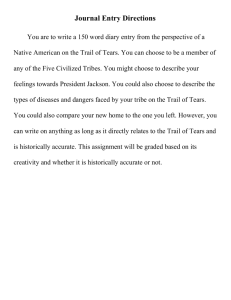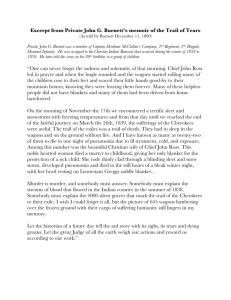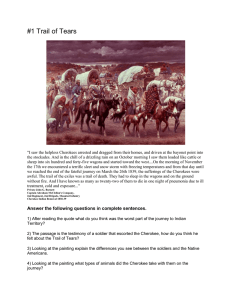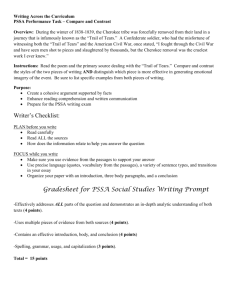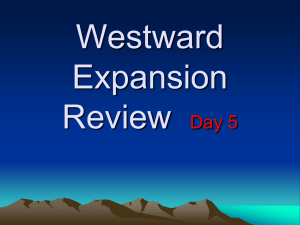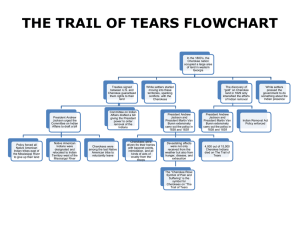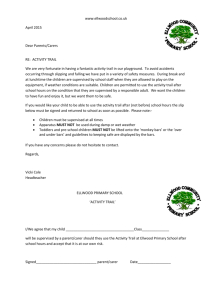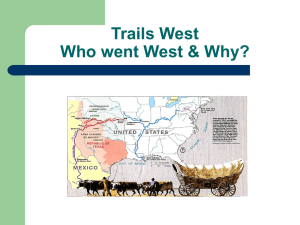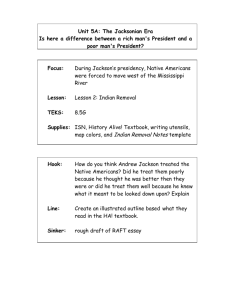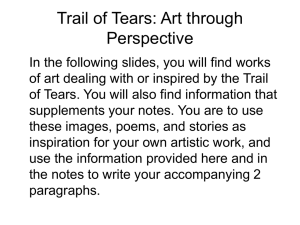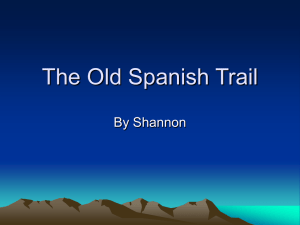discussion - WordPress.com
advertisement
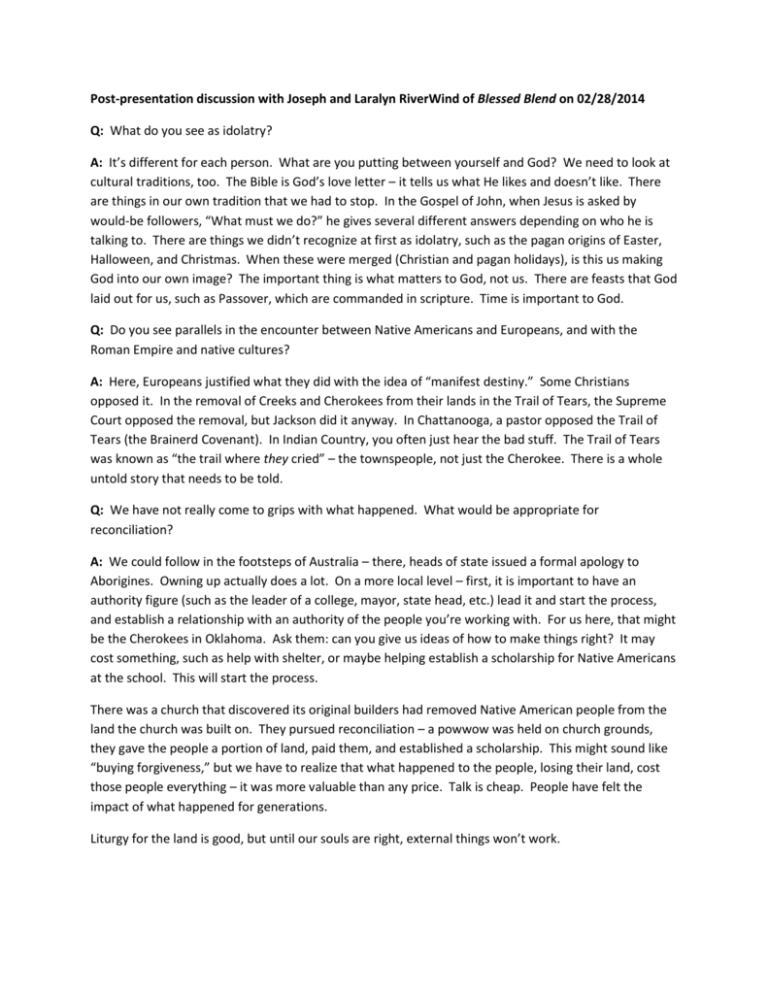
Post-presentation discussion with Joseph and Laralyn RiverWind of Blessed Blend on 02/28/2014 Q: What do you see as idolatry? A: It’s different for each person. What are you putting between yourself and God? We need to look at cultural traditions, too. The Bible is God’s love letter – it tells us what He likes and doesn’t like. There are things in our own tradition that we had to stop. In the Gospel of John, when Jesus is asked by would-be followers, “What must we do?” he gives several different answers depending on who he is talking to. There are things we didn’t recognize at first as idolatry, such as the pagan origins of Easter, Halloween, and Christmas. When these were merged (Christian and pagan holidays), is this us making God into our own image? The important thing is what matters to God, not us. There are feasts that God laid out for us, such as Passover, which are commanded in scripture. Time is important to God. Q: Do you see parallels in the encounter between Native Americans and Europeans, and with the Roman Empire and native cultures? A: Here, Europeans justified what they did with the idea of “manifest destiny.” Some Christians opposed it. In the removal of Creeks and Cherokees from their lands in the Trail of Tears, the Supreme Court opposed the removal, but Jackson did it anyway. In Chattanooga, a pastor opposed the Trail of Tears (the Brainerd Covenant). In Indian Country, you often just hear the bad stuff. The Trail of Tears was known as “the trail where they cried” – the townspeople, not just the Cherokee. There is a whole untold story that needs to be told. Q: We have not really come to grips with what happened. What would be appropriate for reconciliation? A: We could follow in the footsteps of Australia – there, heads of state issued a formal apology to Aborigines. Owning up actually does a lot. On a more local level – first, it is important to have an authority figure (such as the leader of a college, mayor, state head, etc.) lead it and start the process, and establish a relationship with an authority of the people you’re working with. For us here, that might be the Cherokees in Oklahoma. Ask them: can you give us ideas of how to make things right? It may cost something, such as help with shelter, or maybe helping establish a scholarship for Native Americans at the school. This will start the process. There was a church that discovered its original builders had removed Native American people from the land the church was built on. They pursued reconciliation – a powwow was held on church grounds, they gave the people a portion of land, paid them, and established a scholarship. This might sound like “buying forgiveness,” but we have to realize that what happened to the people, losing their land, cost those people everything – it was more valuable than any price. Talk is cheap. People have felt the impact of what happened for generations. Liturgy for the land is good, but until our souls are right, external things won’t work. Q: Thinking about Tri Robinson’s church and their land: how would praying for the land be different if, for example, the dry cleaner (which was polluting the land and groundwater) was still in operation? How do you pray for healing of the land when you don’t have control of what is happening to it? A: Confronting an unruly person usually doesn’t work. Pray that the heart of the person will change… or that they will be removed to a different space! Q: Our Christian stories need to recognize that we bring sorrow to the land. Wondering about people who read the Bible and deny that anything will happen to the land… A: People are putting God in a box, it’s a fantasy world. But we need to build bridges of understanding. We don’t know what those dry cleaner folks are thinking. At least people are talking about it now, compared to 60 years ago – think time will improve the situation. Especially now that more people are talking about it now in the church. There are more environmental laws, there is more consciousness. Q: We mistreat the land because we mistreat each other, and vice-versa. The church is passive because of bad theology – i.e. the idea that God is not interested in the land. We need to work on our language and our storytelling. A: As humans, we’re designed to care about the land. As an agricultural society, this hit home more than it does now that we are more removed from the land: sin against God brings punishment of the land. Our progress feels very slow, like removing the pollution one teaspoon at a time. Q: In your presentation, thinking about the “boundary stones”… do you see an unwillingness to work with neighbors to share what is in common – a lack of community? A: In Deuteronomy, God set the boundary stones of nations. The Lord assigns angels to different territories. When we move boundary stones, we’re also meddling with spiritual boundaries. It’s loving your neighbor less than yourself.
